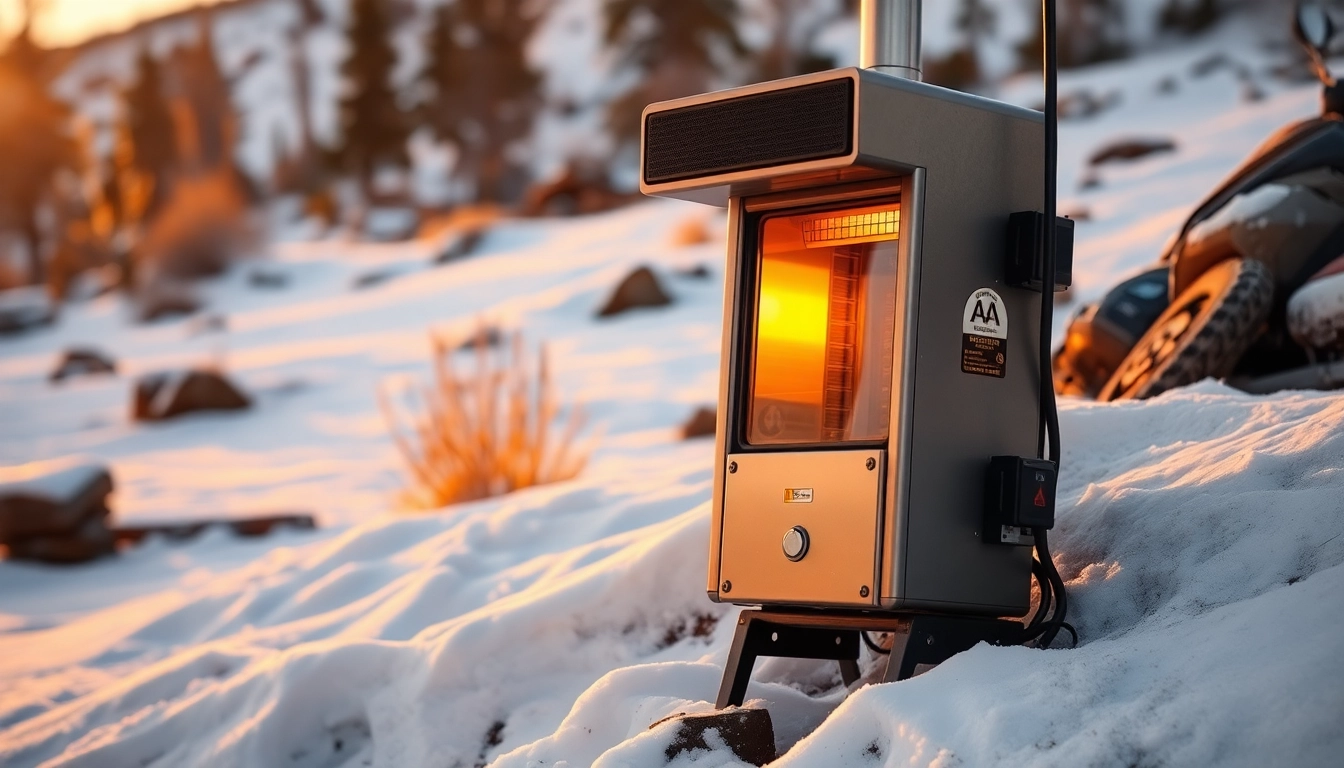Understanding Diesel Fuel Heaters
What is a Diesel Fuel Heater?
A diesel fuel heater is a specialized device designed to heat diesel fuel before it enters the engine or the fuel system. These heaters are essential in maintaining optimal fuel temperatures, especially in colder climates where diesel fuel tends to gel or thicken. As such, they are critical for ensuring that diesel engines start and operate efficiently, preventing issues related to cold starts and fuel quality deterioration.
How Diesel Fuel Heaters Work
Diesel fuel heaters function by using various technologies to warm the fuel. The common types include in-line heaters, tank heaters, and fuel filter heaters. The main operational principle involves circulating the fuel through a heated element that raises the temperature of the diesel before it reaches the engine. This process ensures that the diesel remains fluid and free from waxy build-up, enhancing its combustion efficiency.
Common Applications of Diesel Fuel Heaters
Diesel fuel heaters are widely used in several applications, including:
- Transport Vehicles: Trucks, buses, and other heavy-duty vehicles utilize diesel fuel heaters to ensure reliable starts and prevent fuel-related problems during cold weather.
- Construction Equipment: Machinery such as excavators and loaders often operate in extreme conditions, necessitating the use of fuel heaters to maintain performance.
- Maritime Use: Boats and ships equipped with diesel engines rely on fuel heaters to ensure that their engines operate correctly in cold waters.
- Generators: Many standby generators, especially in colder climates, are fitted with diesel fuel heaters to guarantee they will fire up when needed.
Benefits of Using Diesel Fuel Heaters
Improved Cold Weather Performance
One of the most significant benefits of diesel fuel heaters is improved performance during cold weather. Diesel fuel tends to gel when temperatures drop, making it difficult for engines to start and run smoothly. By maintaining an appropriate fuel temperature, diesel fuel heaters enhance combustion and overall engine performance, ensuring that vehicles start reliably in frigid conditions.
Prevention of Fuel Gelling
Beyond just enhancing performance, diesel fuel heaters also play a crucial role in preventing fuel gelling. Gelled fuel can clog fuel filters and lines, leading to engine failures and costly downtime. By keeping diesel fuel at optimal temperatures, heaters minimize the chances of fuel gelling, ensuring that the engine runs smoothly without interruptions due to poor fuel quality.
Enhanced Engine Life and Efficiency
Heating the fuel before it enters the engine not only ensures better ignition but also improves fuel atomization, thus enhancing combustion efficiency. This can lead to lower emissions and reduced wear on engine components. Over time, using a diesel fuel heater can contribute to longer engine life and lower maintenance costs, making them a smart investment for diesel vehicle owners.
Types of Diesel Fuel Heaters
In-Line Diesel Fuel Heaters
In-line diesel fuel heaters are installed directly in the fuel line, ensuring that the fuel is heated as it travels to the engine. These heaters are typically electric and can efficiently raise the temperature of the fuel within minutes. They are particularly effective for quick starts in cold climates and can prevent fuel gelling effectively.
Tank and Fuel Filter Heaters
These heaters are installed either within the fuel tank or on the fuel filter. Tank heaters warm the diesel while it is still in the tank, while filter heaters ensure that the fuel entering the injector pump is at the right temperature. Both types are vital in areas with extreme cold and provide additional support to in-line heaters for a more comprehensive heating solution.
Portable Diesel Fuel Heaters
For those who need flexibility, portable diesel fuel heaters are an excellent option. These units can be transported easily and used wherever required, making them ideal for temporary setups or outdoor applications like camping or construction sites. They are often fueled by the same diesel they aim to heat, creating a self-sufficient system.
Installation and Maintenance Tips
Proper Installation Techniques
Proper installation of diesel fuel heaters is crucial for optimal performance. It is advised to follow manufacturer guidelines closely and ensure that all electrical connections are secure. In-line heaters should be installed in a way that allows for easy access for maintenance and inspection, and should always be placed downstream of any filters to ensure clean fuel is heated.
Regular Maintenance to Ensure Longevity
Maintaining diesel fuel heaters should be a regular part of vehicle upkeep, especially before entering colder months. This includes checking electrical connections, ensuring there is no leakage, and cleaning any filters or components to avoid blockages. Regular inspections can help spot wear and tear before it leads to system failure.
Identifying and Troubleshooting Common Issues
Some common issues with diesel fuel heaters include electrical failures, fuel leaks, and insufficient heating. Vehicle owners should monitor the system for any unusual sounds or smells, which may indicate a malfunction. If the heater does not seem to maintain optimal temperature, checking for electrical continuity and replacing damaged components may be necessary.
Choosing the Right Diesel Fuel Heater for Your Needs
Factors to Consider Before Buying
When selecting a diesel fuel heater, several factors must be considered, including:
- Operating Environment: The climate and typical weather conditions should dictate the type and capacity of the heater chosen.
- Compatibility: Ensure that the heater is compatible with your engine and fuel system.
- Power Options: Check if the heater is electric, fuel-based, or a combination of both to suit your specific needs.
Comparing Features and Brands
Not all diesel fuel heaters are created equal, and it’s important to research various brands and models. Look for features such as heating efficiency, safety protocols, and customer reviews. Brands with a strong reputation for quality and durability often provide a better long-term solution.
Best Practices for Optimal Performance
To ensure optimal performance from your diesel fuel heater, adhere to best practices such as regular maintenance, proper installation, and appropriate usage defined by manufacturer guidelines. Additionally, consider environmental factors such as extreme temperatures, as these can impact heater performance.
